China
Date Adopted: 1949
Flag Ratio: 2:3
Capital: Beijing
Currency: Yuan
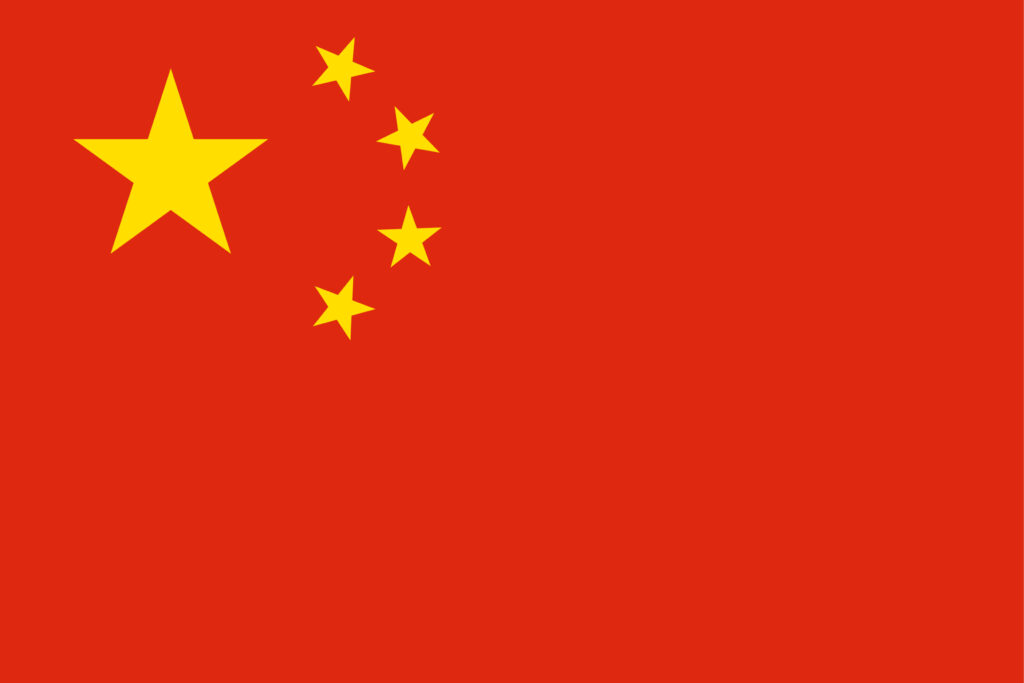
- The red color of the Chinese flag represents the Communist Revolution and the blood of the individuals who lost their lives in the course of the Japanese invasion and the civil war.
- The yellow color of the stars represents the golden brilliant rays radiating from the vast red land.
- The large gold star represents the country’s Communist Party and its role in leading the nation.
- The four smaller stars symbolize the four social classes – the working class, the peasantry, the urban petty bourgeoisie, and the national bourgeoisie (capitalists) and their relationships with each other – representing the unity under the rule of the Communist Party of China.
- Red is also the traditional color of Chinese society, while the five stars also together reflect the importance placed on number five in Chinese thought and history.
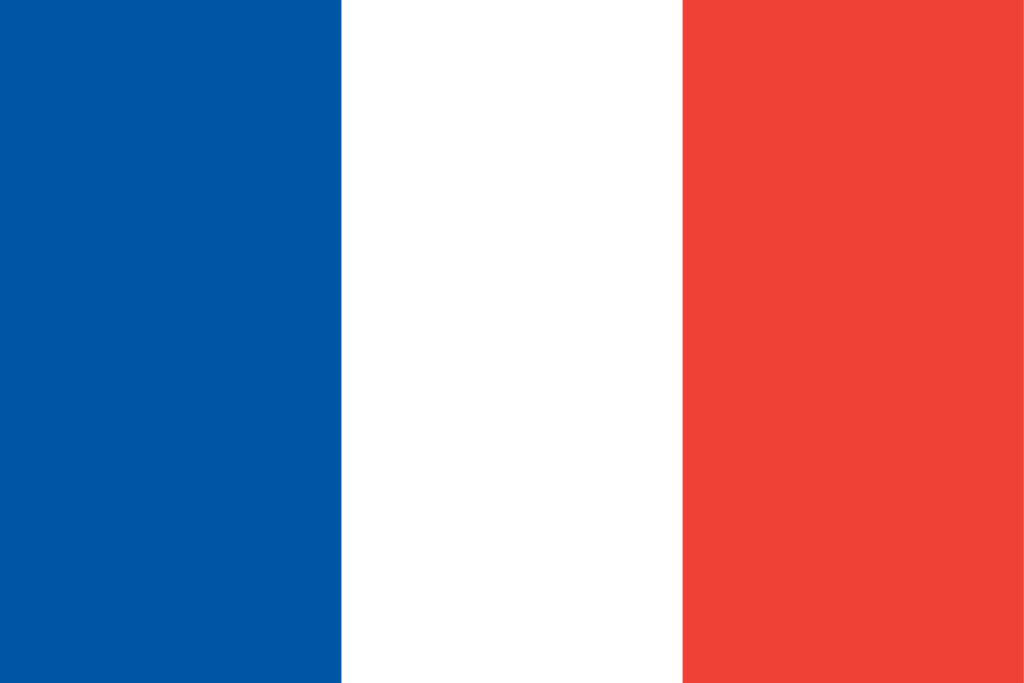
France
Date Adopted: 1794
Flag Ratio: 2:3
Capital: Paris
Currency: Euro
The cockade of France, used in the French Revolution influenced the adoption of the tricolor flag. It had its origins in the union, at the time of the French Revolution, of the colours of the King (white) and the City of Paris (blue and red), to represent liberty, equality and fraternity.
According to Ancient and Heraldic traditions much symbolism is associated with colors. The colors on the French flag represent the following:
- White – symbol of peace and honesty
- Red – symbol of hardiness, bravery, strength & valour
- Blue – symbol of vigilance, truth and loyalty, perseverance & justice
The French flag has three equal vertical bands of blue (hoist side), white, and red, and is also known as the French Tricouleur (Tricolor).
Russia
Date Adopted: 1991
Date Flag Ratio: 2:3
Capital: Moscow
Currency: Ruble
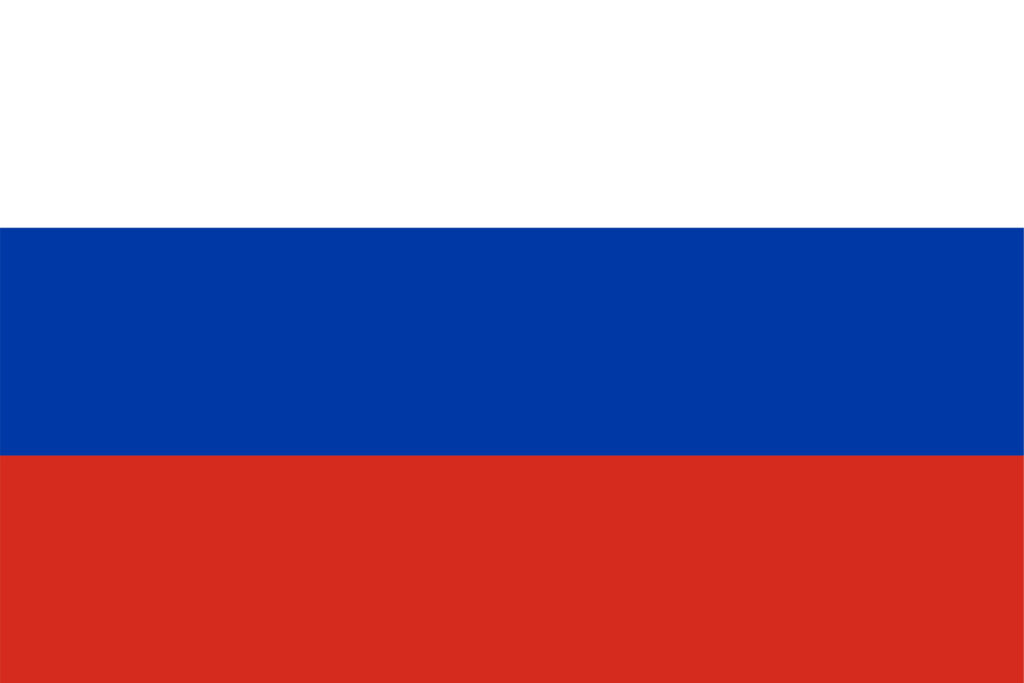
The National Flag of Russia features three equal horizontal bands of white (top), blue, and red. The colours in the Russian flag have influenced many Eastern European flags. Russia’s Flag has three colours; white, blue and red. Traditional meaning of the colours in Russian flag is different from the modern one. For instance, in traditional meaning:
- White represented freedom and independence,
- Blue represented the Virgin Mary protecting Russia, and
- Red represented power.
There is another interpretation which state that the colour white represent God, blue represent King while red colour represent the Russian people.
However, there is another modern and general interpretation which states that white color symbolizes nobility and frankness, the blue for faithfulness, honesty, impeccability, and chastity, and red for courage, generosity, and love. Russia celebrates National Flag Day on 22 August, every year, nicknamed the day of the victory over putschists of 1991, but employees remain at work.
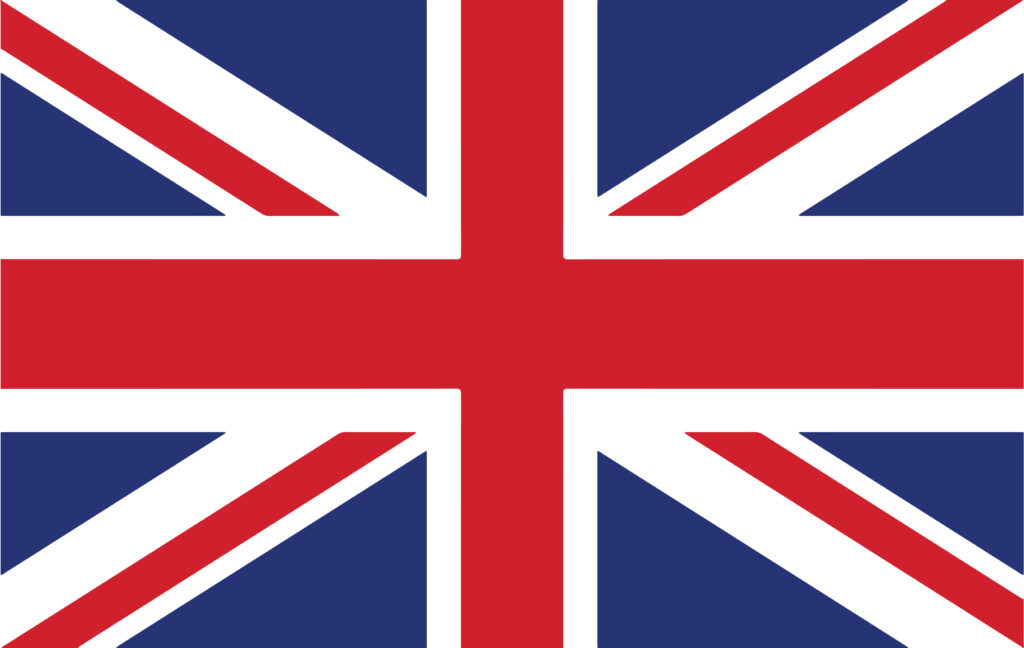
The United Kingdom
Date Adopted: 1801
Flag Ratio: 1:2
Capital: London
Currency: Pound sterling
The National Flag of the United Kingdom (Union Jack) features a blue background with the centered red cross edged in white. This is superimposed on the diagonal white cross on the blue background; which is again further superimposed on the diagonal x-shaped red saltire
Since before 1600, ‘jack’ has been used to describe a small flag flown from the mast of a ship – so, when a small version of the Union Jack started to be flown around 1627, it was often referred to as the jack, jack flag or King’s jack. By 1674, this nickname had morphed into His Majesty’s Jack or Union Jack.

The ‘Union Jack’ is made of three crosses; St George’s Red Cross of the kingdom of England, St Andrew’s white saltire of Scotland, and St Patrick’s red saltire of the Ireland. The three crosses represent England, Scotland and Ireland.
According to Ancient & Heraldic traditions, the colours of the flag are associated with symbolism.
- White colour was a symbol of purity, truth and innocence.
- Red colour was a symbol of military strength, martyrdom, and warriorhood.
- Blue colour was a symbol of faith, honesty, loyalty and power.
But, the modern and precise meaning of the colours of the flag are:
- White – peace and honesty
- Red – hardiness, bravery, strength & valour
- Blue – vigilance, truth and loyalty, perseverance & justice
The Union Jack has been the basis for several other flags including the flags of other Commonwealth countries and their constituent states or provinces, and the flags of British Overseas Territories.
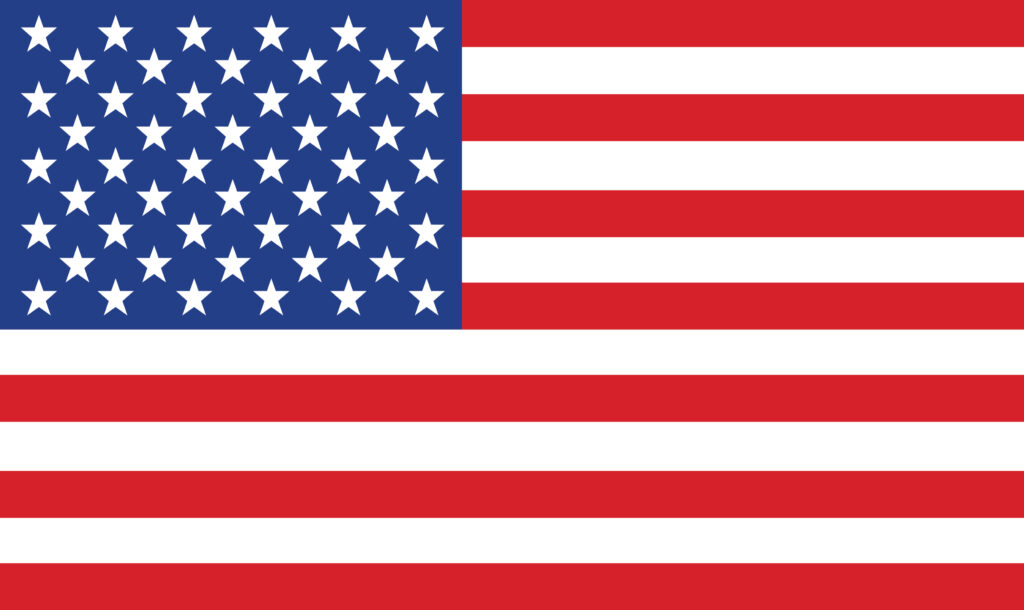
The Unite States of America
Date adopted: 1777
Flag Ratio: 10:19
Capital: Washington D.C.
Currency: US Dollar
The National Flag of the United States of America (13-star version) was first adopted in 1777. The current flag of the USA having 50 stars in the flag was designed by Robert G. Heft, and was officially adopted on July 4, 1960.
The National Flag of the United States of America features 13 equal horizontal stripes of red (top and bottom) alternating with white stripes, and in the upper hoist-side corner (canton) there is a blue rectangle bearing 50 small, white, five-pointed stars. The stars on the USA flag are arranged in nine offset horizontal rows of stars – six stars are displayed on the top and bottom rows – the rows of six stars alternate with rows of five stars.
According to Ancient and Heraldic traditions much symbolism is associated with colors. The colors on the USA flag represent the following:
- The blue color of the flag stands for loyalty, devotion, truth, justice, and friendship.
- The red color of the flag symbolizes courage, zeal, and fervency.
- The white color of the flag denotes purity and rectitude of conduct.
The 50 stars represent the 50 states of the USA while the 13 stripes on the USA flag represent the 13 original colonies (known as Old Glory). The flag has a width-to-length proportion ratio of 10:19.